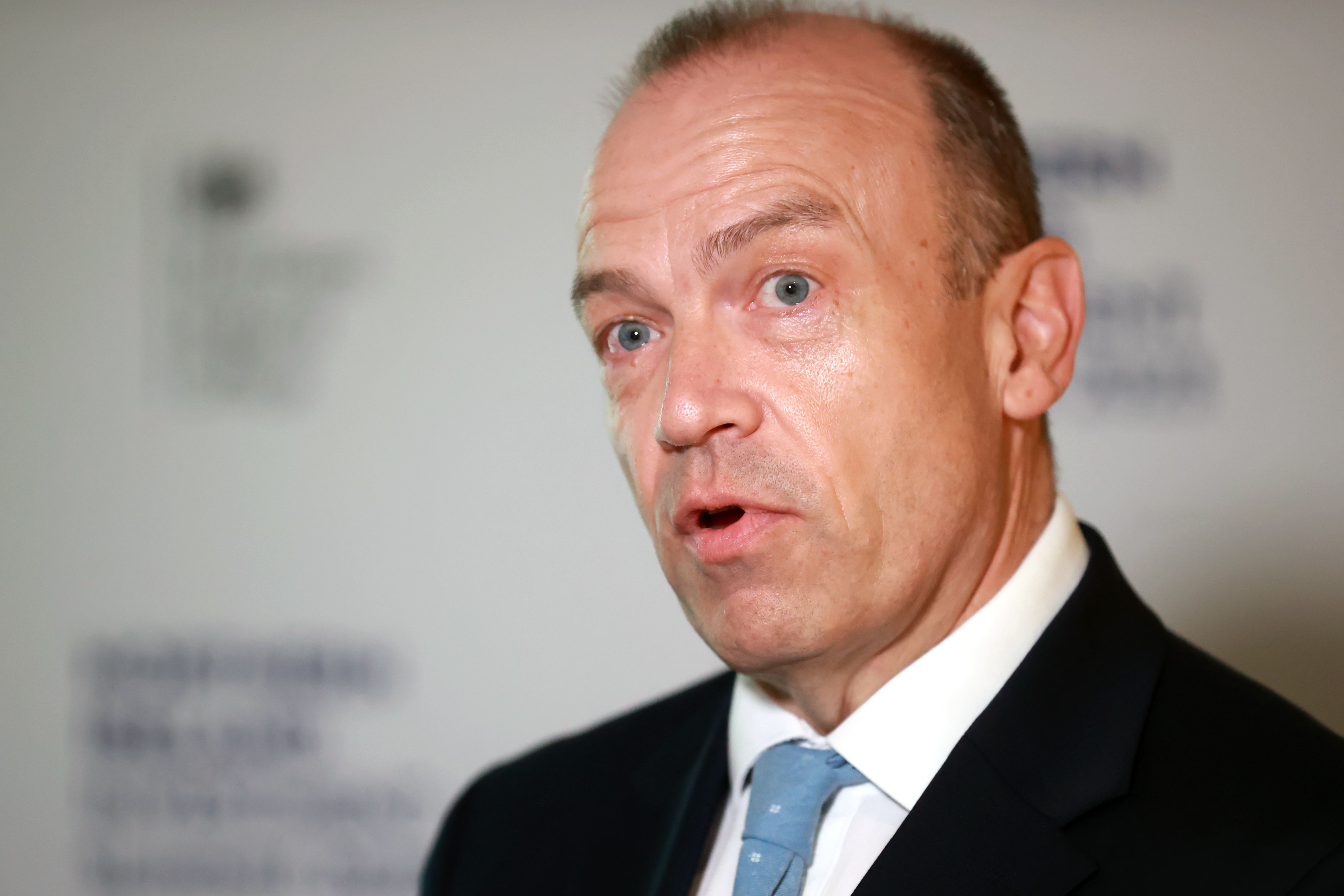Heaton-Harris orders civil servants to seek views on ways to raise revenue
Options include water charges, prescription fees, and increasing university tuition fees.

Stormont civil servants have been ordered by Northern Ireland Secretary Chris Heaton-Harris to launch public consultations on revenue-raising measures for the region.
Mr Heaton-Harris said the consultations would be on similar measures to those that already exist in other parts of the UK – such as introducing domestic water and waste water charges, drug prescription charges, and increasing university tuition fees.
The minister, who will also review the level of the domestic and non-domestic regional rate, said generating revenue to balance the Stormont budget is a “critical necessity”.
In the absence of an executive, public consultations will be run by Northern Ireland departments on measures for supporting budget sustainability and raising additional revenue
Sinn Fein has said the Secretary of State is acting against the wishes of the people of Northern Ireland, while the DUP said he must recognise there needs to be a recalibration of how the region is funded by the Treasury.
Northern Ireland is currently without devolved powersharing institutions due to the DUP’s protest against post-Brexit trading arrangements, and Mr Heaton-Harris introduced a budget in their absence.
Senior civil servants are currently running public services in the region.
They have estimated that Stormont departments need hundreds of millions of pounds in extra funding to maintain public services at their current level this year, while hundreds of millions more are needed to settle a series of public sector pay disputes in the region.
There is currently no charge for medical prescriptions in the region and Northern Ireland students who study at local universities pay £4,630 a year in tuition fees, compared with a maximum of £9,250 to study in England.
Mr Heaton-Harris has long argued that additional revenue-raising measures are required to balance the books.
He said: “In order to improve the sustainability of public finances, generating revenue is not merely an option but a critical necessity.
“Of course, it is my clear wish that these matters were being dealt with by a fully functioning executive and Assembly. And we are working tirelessly to bring that about.
Conducting these consultations will enable Northern Ireland departments to identify ways to improve the sustainability of public services and public finances, paving the way for long-awaited improvement and transformation of these services
“In the absence of an executive, public consultations will be run by Northern Ireland departments on measures for supporting budget sustainability and raising additional revenue.
“Conducting these consultations will enable Northern Ireland departments to identify ways to improve the sustainability of public services and public finances, paving the way for long-awaited improvement and transformation of these services that we all rely on and want to protect.
“I am keen that the public and all interested parties have an opportunity to consider the range of options being examined and to feed in their views.”
The Northern Ireland Secretary said the purpose of the consultations is to gather views so a restored executive can make funding decisions in the future.
He said the UK Government has already provided more than £7 billion in additional funding support to Northern Ireland, on top of the Barnett-based block grant since 2014.
He added: “It is my expectation that a returning executive will consider responses to these consultations and use this to make the necessary decisions to put Northern Ireland’s public finances on a sustainable footing.
“It is important that we do not lose momentum on this work.”
Sinn Fein MLA Conor Murphy said the Northern Ireland Secretary was acting against the wishes of the people in Northern Ireland.
He said: “This comes from a party and a Secretary of State which hasn’t a single vote here, which can’t even elect a councillor in the north, whose policies have been roundly rejected by the electorate.
“So, as with Brexit and as with the legacy Bill, they are acting directly against the democratic expressed wishes of the people here.
We will oppose the Secretary of State taxing Northern Ireland more just to plug the gaps created by Treasury underfunding. Unless there is a recalibration of how Northern Ireland is funded ... it will lead to our budgetary pressures getting worse
“When we were in the executive we were able to offset and undo the worst elements of Tory policy by putting our own resources to try and protect people from that.
“The DUP’s continued blockade of the executive has really left us exposed to complete Tory policy.”
DUP deputy leader Gavin Robinson said the Secretary of State needed to recognise that Northern Ireand was underfunded.
He said: “We will oppose the Secretary of State taxing Northern Ireland more just to plug the gaps created by Treasury underfunding.
“Unless there is a recalibration of how Northern Ireland is funded, with or without an executive, it will lead to our budgetary pressures getting worse.
“Public services in Northern Ireland will stall and get to a point where it is irretrievable.”
Subscribe to Independent Premium to bookmark this article
Want to bookmark your favourite articles and stories to read or reference later? Start your Independent Premium subscription today.
